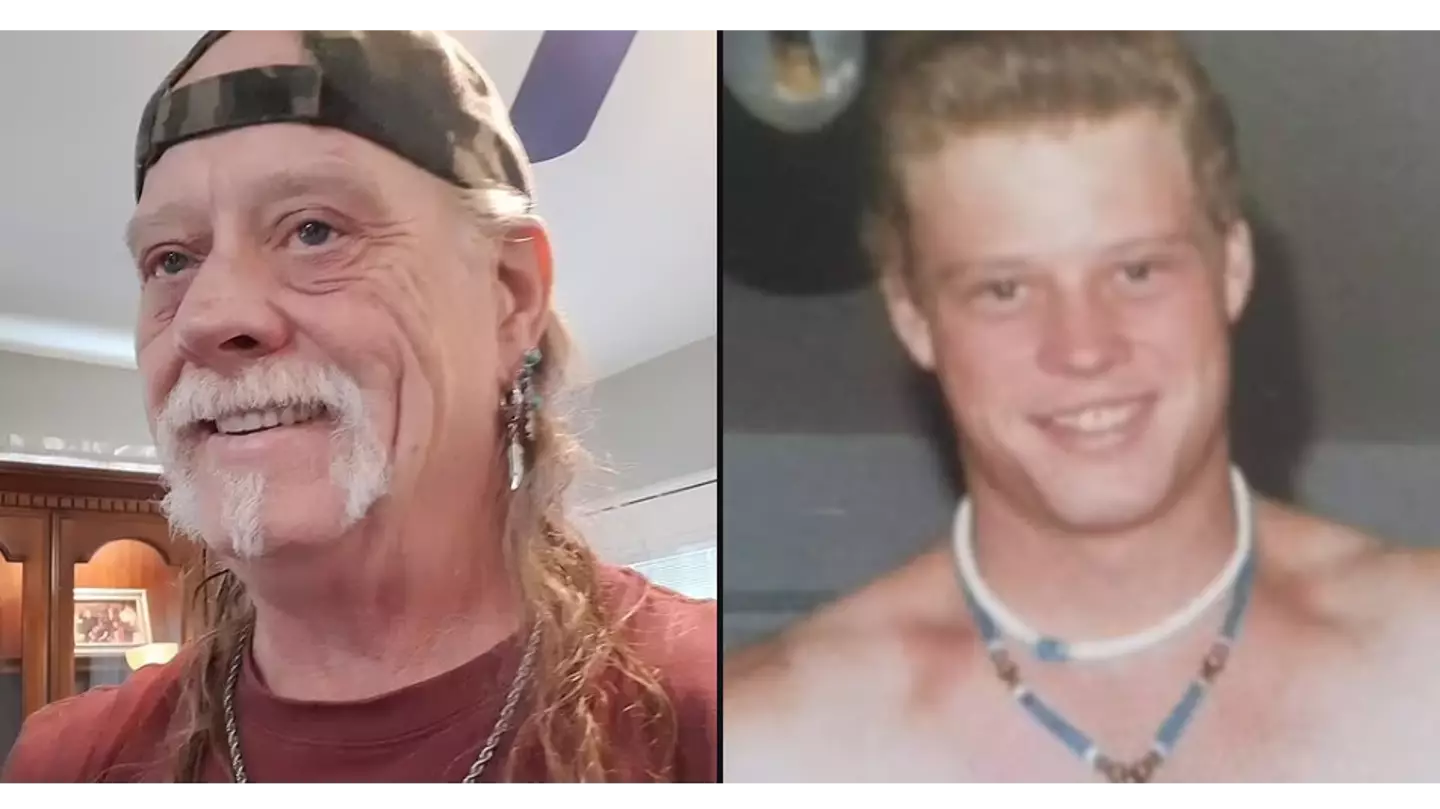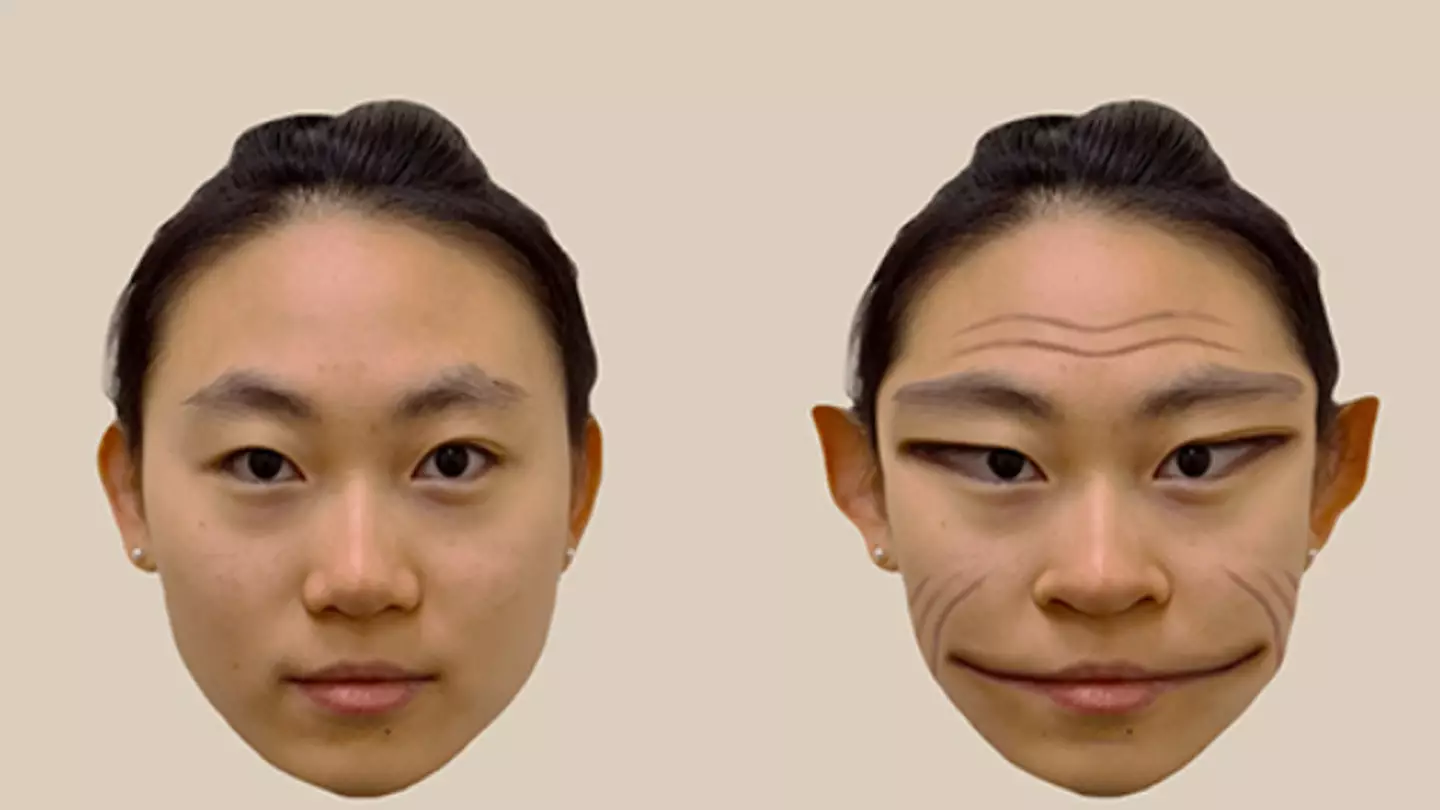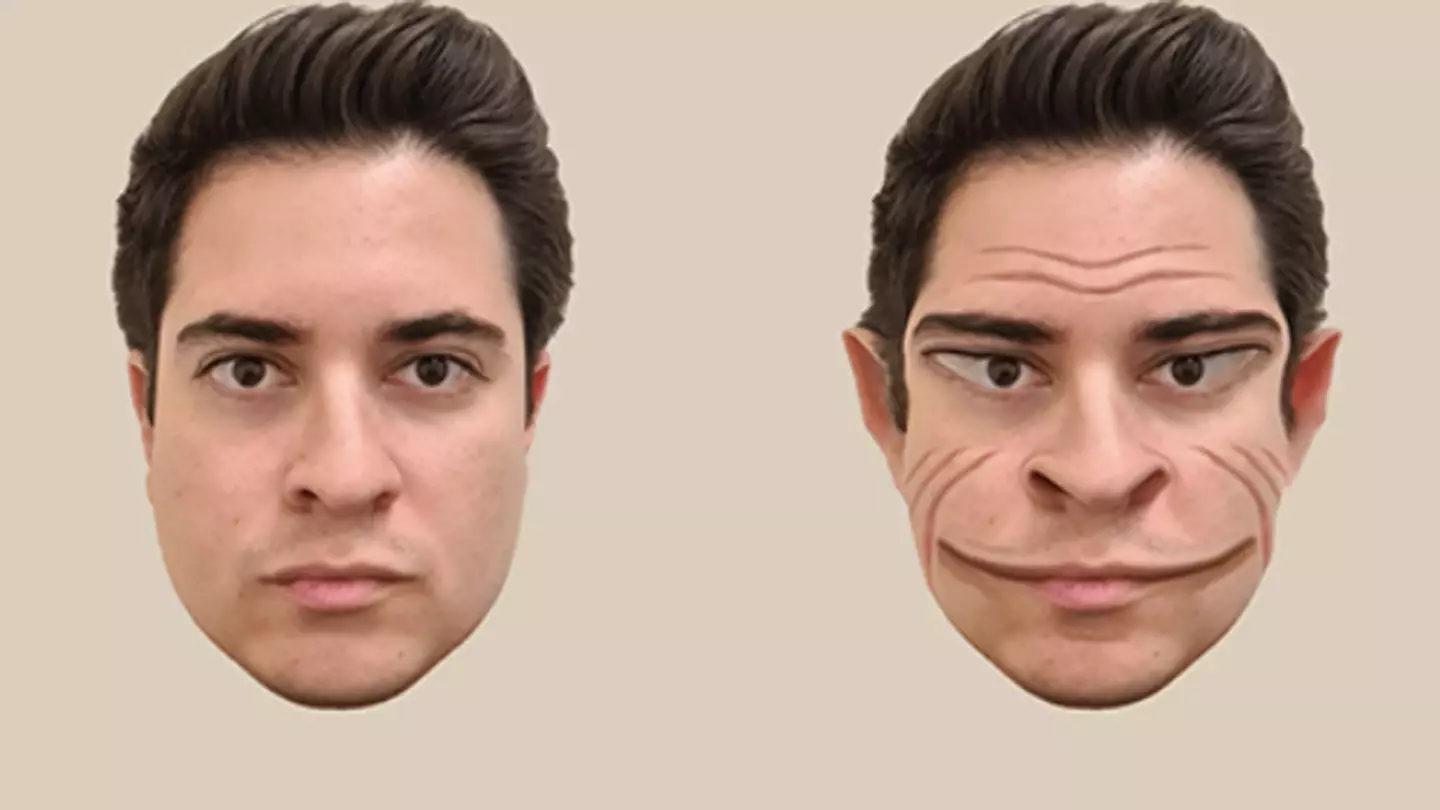
The beauty of horror movies is that you can scare yourself sh*tless before turning off the TV and reassuring yourself that all of the terrifying things you just saw aren't real.
But for Victor Sharrah, the nightmare that we see on our screens never ends - as he is one of only 75 people in the world to suffer from one of the rarest neurological conditions that has ever been identified.
The 59-year-old, from Clarksville, Tennessee, has been experiencing prosopometamorphopsia, or PMO, which he says has made his life like a 'horror movie' for the last three years.
 Facebook
Facebook

He explained that his strange symptoms first began back in November 2021, when he was left horrified as he watched his roommate walk through their apartment and noticed that the man appeared to have a 'demon face'.
Sharrah recalled how the bloke's mouth seemed to be stretched wide, his ears were elongated and 'goblin-like', his eyes were stretched outwards, his nostrils flared, and his brow, cheeks and chin were furrowed with deep grooves.
"I was going to go have myself committed"
The former truck driver told the Times: "I thought, ‘What the hell did I just see?. It was like something out of a Star Trek movie, like a demon face."
Advert
He then headed out to walk his dog, only to realise that it wasn't just his roommate who was wearing a frightening face - as everyone he saw on the street also 'had their faces distorted'.
"I was really freaking out at that point. I was going to go have myself committed," Sharrah said.
It later emerged that what the American was actually seeing were distortions as a result of PMO, but bizarrely, faces on the TV screen or in photographs appeared normal to him.
"Much more traumatic than the pictures can convey"
This unique aspect of his condition has given scientists an extraordinary opportunity to dig deeper into the effects of the rare disorder by recruiting Sharrah to help them recreate images of what the 'demon faces' actually look like.
Advert
A groundbreaking paper published in the medical journal The Lancet has given people an insight into the everyday horror that people who suffer from PMO have to deal with, as two-dimensional static images were produced of what they see.
Despite the uneasiness you may feel by just simply looking at these mockups, Sharrah says seeing this distorted faces talking, moving and gesturing is 'much more traumatic than the pictures can convey'.

Only 75 cases of PMO have ever been recorded, so this has been a huge step towards understanding the condition.
It affects the area of the brain that deals with facial recognition and this dysfunction causes sufferers to see faces which appear warped, rather than the regular ones most of us see.
"What I was seeing was a distortion"
Scientists aren't completely certain on what causes it, although people who have endured head injuries, ischemic strokes, migraines and epilepsy commonly experience it.
Advert
Sharrah explained he had initially shared his alarming experiences on an online support forum, where an expert responded and suggested he may have PMO.
"She explained that I hadn’t lost my mind or need to be committed," he continued. "What I was seeing was a distortion."
He said he has a history of bipolar disorder and also suffered from a head injury in 2007 when he was trying to unjam the door of his trailer before flying backwards and hitting his head on concrete.
Sharrah also suffered from possible carbon monoxide poisoning four months before symptoms began.

Advert
Tests showed that he was 'well and not distressed' as well as having normal cognitive function, although scans did locate a 1cm cyst in the left part of the hippocampus area of his brain.
" I hope we can help [stop] some from experiencing the trauma I did"
Sharrah said that he had 'pretty much gotten used to' seeing 'demon faces' everywhere he goes, but he still holds out hope that 'it could correct itself and go away'.
He added: "I don’t want people on medications for psychosis when they just have a vision disorder. I hope we can help [stop] some from experiencing the trauma I did."
Experts at Dartmouth College in New Hampshire said: "Not surprisingly, people with PMO often find it disturbing to look at other people’s faces.
Advert
"Fortunately, most cases last only a few days or weeks, but some cases perceive distortions in faces for years."
Researchers said of Sharrah's case: "The distortions were not accompanied by delusional beliefs about the identities of the people he encountered - such as his family or friends … the distortions were very distressing to him initially, but he had become habituated to them."